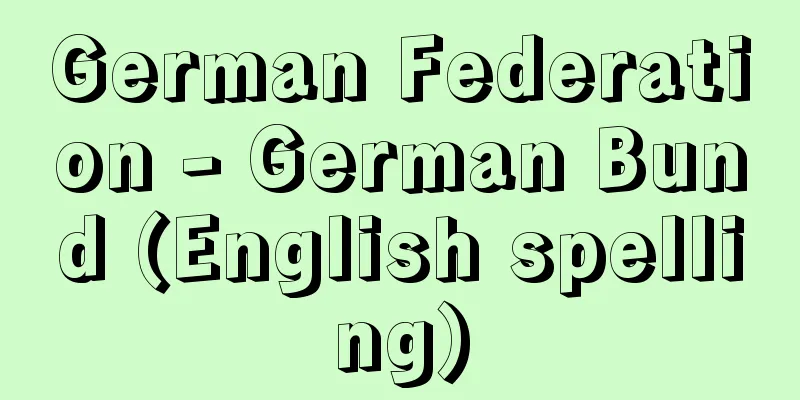German Federation - German Bund (English spelling)

|
The German state was established in June 1815 by the Congress of Vienna, and dissolved in the Treaty of Prague in 1866 after the Prussian-Austrian War. It consisted of 38 principalities (later 39 with the addition of the County of Homburg in 1817), including the Austrian Empire, five kingdoms (including Prussia and Saxony), the Electorate of Hesse-Kassel, seven grand duchies, ten principalities, ten principalities, and four free cities. The federal parliament was located in Frankfurt. The member states had no restrictions on their sovereignty, except for cooperating with each other in the event of war with other states in the federation, and the prohibition of war between each other. In general affairs, large states had one vote, and small states had one vote if several states joined together. When important bills were to be discussed, a general assembly was formed, and voting rights were exercised according to the size of the nation's power. The chairman of the Federal Diet was selected from Austria, and under the leadership of Metternich, the Federal Diet played a reactionary role until the March Revolution, when it was dissolved on July 12 and handed over its powers to the Frankfurt National Assembly. After the counter-revolution, the Federal Diet was revived in 1850-1851 at the suggestion of Austria, and the first Federal Diet after the revival was held in the summer of 1851, but it was dominated by a power struggle between Austria and Prussia, and the Confederation was officially dissolved by the Treaty of Prague after the Prussian-Austrian War. Source: Encyclopaedia Britannica Concise Encyclopedia About Encyclopaedia Britannica Concise Encyclopedia Information |
|
ウィーン会議により 1815年6月発足し,プロシア=オーストリア戦争後の 66年のプラハ条約で解体したドイツの国家組織。オーストリア帝国およびプロシア,ザクセンなど5王国,ヘッセン=カッセル選帝侯国のほか大公国7,公国 10,侯国 10,自由都市4の計 38君主国 (のち 1817年にホンブルク地方伯領加入で 39) から成り,フランクフルトに連邦議会がおかれた。参加各邦は連邦内他国の戦争の際の一致協力と,相互間の戦争禁止以外は主権を制約されず,一般事務処理の際は大国1票,小邦は数国を合せて1票の表決権を有し,重要法案審議の際は総会を構成し,その表決権は国力の大小に応じて行使された。連邦議会の議長はオーストリアより出され,指導権をもったメッテルニヒのもと連邦議会は,三月革命までの反動的役割を果し,革命後の7月 12日,フランクフルト国民議会に権限をゆだねて解散。反革命後,オーストリアの提唱で 50~51年ドレスデン議会により復活,51年夏,復活後最初の連邦議会が開かれたが,オーストリア,プロシアの勢力争いに終始し,結局プロシア=オーストリア戦争後のプラハ条約で連邦は正式に解体した。
出典 ブリタニカ国際大百科事典 小項目事典ブリタニカ国際大百科事典 小項目事典について 情報 |
<<: Federal Republic of Germany - Germany (English spelling) Deutschland
>>: Germany Year Zero - German Reinen
Recommend
Deposit receipt - Azkari Shoken
A security that a warehouseman gives to a cargo de...
Oshigoromo - Ushinchi
…After the Meiji period, upper-class men rapidly ...
darkling beetle
…The name of this family was given because the ad...
Paramyosin
A structural protein in the muscles of invertebrat...
Accounting report - Kaikeihokoku
...Accounting is the process of recording and cal...
Alfraganus
…Arab astronomer. His Latin name was Alfraganus. ...
Bar Daiṣān
154‐222 Syrian Christian theologian. Greek name Ba...
Fréjus Tunnel (English)
This long road tunnel is located on the internatio...
Enuresis
A condition in which urine leaks without physiolog...
Izumiya Genzo
...A comic book writer and kyoka poet of the late...
Nanzenji Temple
Located in Nanzenji Fukuchi-cho, Sakyo Ward, Kyot...
Rolling rice ball
…An old tale. It is also called “The Rolling Rice...
NMR - nuclear magnetic resonance
Nuclear magnetic resonance is a method of non-dest...
Supriyadi
…However, the rebellion was suppressed within a f...
Lunda
...The kingdom of the Lunda people that once exis...









